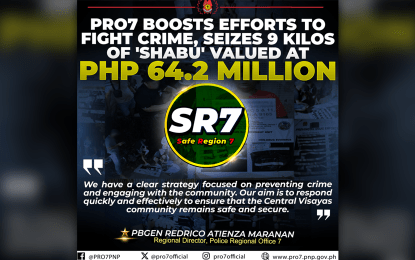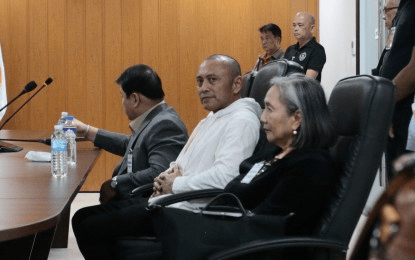By Christopher Lloyd Caliwan

MANILA – A police officer is facing sedition charges for his social media posts in connection with the International Criminal Court’s (ICC) case against former president Rodrigo Duterte.
In a statement, the Quezon City Police District (QCPD) said Pat. Francis Steve Tallion Fontillas was charged with inciting to sedition (Article 142 of the Revised Penal Code) in relation to the Cybercrime Prevention Act of 2012 (Republic Act 10175) on Monday.
In one of the vlogs uploaded on his Facebook page Fonts Stv Vlogs, Fontillas lashed out at President Ferdinand R. Marcos Jr. and top police officials, particularly Criminal Investigation and Detection Group chief Maj. Gen. Nicolas Torre III, and threatened the ICC over the issue.
Records from the District Personnel Records and Management Division showed Fontillas has been assigned to the District Personnel and Holding Admin Section since Feb. 20 but has been absent without official leave since March 6.
QCPD Acting Director Col. Melecio Buslig Jr. reminded all personnel to adhere to the highest standards of professionalism and discipline.
He added that PNP officers shall remain apolitical and non-partisan at all times and must refrain from posting unauthorized and biased content on social media and other communication platforms.
Disturbing behavior
PNP spokesperson Brig. Gen. Jean Fajardo, in a phone interview, said the police officer has a history of disturbing behavior, which include having a short temper and mood swings. He underwent medication in 2023.
She said Fontillas applied for a sick leave on March 4 but it was disapproved.
“When the arrest of the former president took place, he started to do vlogs and make comments. Because of that, the QCPD director asked him to report to duty but he refused to report. He said he will not report until his medical leave is over. However, his medical leave was disapproved because he was not able to present a medical certificate to justify the need for it,” Fajardo said.
She said the National Capital Region Police Office is now looking at placing the police officer under restrictive custody due to his disturbing behavior.
“Aside from the sedition case and his willful violation of the existing policies, including his refusal to report physically, we have documented all of these,” Fajardo said.
She said the cop would also face administrative charges which may result in dismissal from the service.
Napolcom orders probe
Meanwhile, National Police Commission (Napolcom) Commissioner Rafael Vicente Calinisan ordered the Inspection, Monitoring and Investigation Service to immediately investigate and file administrative charges against Fontillas.
“Worst, his posts are clearly malicious and criminal in nature as they are already inciting to sedition. While admittedly, PNP personnel have rights to freedom of expression as guaranteed in our Constitution, these rights are limited by their obligation to maintain neutrality and avoid actions that could compromise public trust and undermine the public’s perception of their impartiality,” Calinisan said in a separate statement.
He said heavy sanctions await those who would violate election laws, civil service rules, Napolcom and PNP policies and other administrative guidelines.
“I repeat, the uniformed service must be forever apolitical. The PNP’s primary function is to ensure public safety, enforce the law, and serve and protect the people. They are not meant to take political sides,” said Calinisan.
Several memoranda and policies have been crafted to ensure that officers remain non-partisan, especially in the digital age when most people air their sentiments and political views on social media.
Among these are the PNP Memorandum Circular No. 2019-034 titled “Revised Policies, Guidelines and Procedures Governing the Enhancement of the PNP Presence in the Social Networking Sites; and No. 2014-005 titled “Policies, Guidelines and Procedures Governing the Enhancement of the PNP Presence in the Social Networking Sites.”
These memoranda said that while the laws and jurisprudence enjoined the state to respect the rights to association, self-organization, and freedom of expression of each and every individual, these are not absolute in public sectors.
It argued that the rights to association, self-organization, and freedom of expression are limited for those who enter government service, as government employees are subjected to a different degree of limitation. (PNA)




